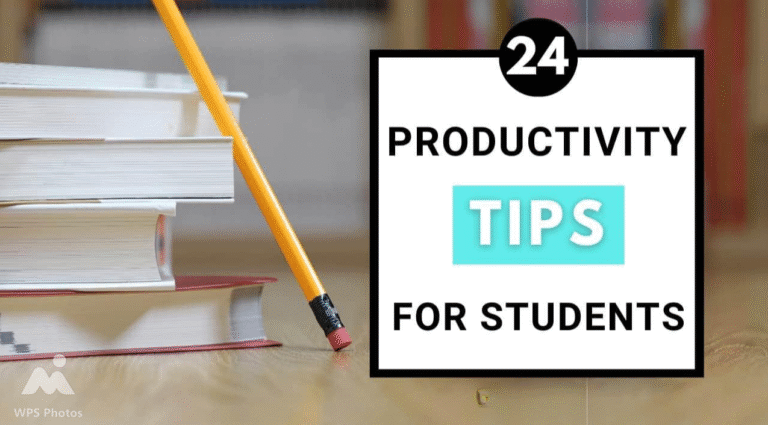Students experience the same workflow each term. Aside from meeting deadlines, they will need to demonstrate their theoretical and practical knowledge and apply creativity. Moreover, it is necessary to stay organised this time. This routine may feel overwhelming for many. Nevertheless, numerous students don’t know where to search for that additional dose of inspiration.
That is where smarter habits make all the difference. Instead of stretching days longer, students now look for ways to make their time work better. Some even search for support from the write my essay UK services to handle heavy workloads and keep energy for revision. Nevertheless, this isn’t the only way to avoid procrastination and stay productive. Learn even more expert hacks before changing your study routine for the better.
Break Your Study Time into Small Sections
Large goals can freeze motivation since you will need to cope with a large scope of tasks within a short deadline. “Revise the whole module” sounds devastating. “Review one topic before lunch” sets a clear, short-term goal that is realistic to accomplish. Here are some tips that will help you stay more organised, even if the number of assignments to do is piling up.
- Study for 25 minutes with full attention. It doesn’t seem to be a long period, but being focused for 25 minutes will give you more than switching between your smartphone and computer.
- Take each hour of work. Stretch, drink water, and look away from the screen. It will help you refresh your mind and make a nice change. It helps to start work with new motivation and ideas.
- After four rounds, rest for 20–30 minutes before the next set. But your rest shouldn’t be connected with gadgets. Try to focus on your hobbies, tidy your room, or water flowers. Physical activity plays a role.
These activities will keep focus sharp and prevent that foggy, restless feeling that builds after long hours of passive reading.
Work During Your Peak Hours
While some people have their productivity boost in the morning, others may do their best at night. Track your own rhythm for a week. Write down when studying feels smooth and when it drags. Adjust your schedule and devote time to study during your periods. It will help you to do more in shorter periods.
Try to Remove Possible Distractions
The modern student’s biggest challenge is not lack of time but constant interruption. Phones buzz, messages arrive, and before you know it, half an hour vanishes. These are what you can do to focus more and distract less.
- Mute notifications during study blocks. If your smartphone is synchronized with a laptop, make sure the notifications won’t appear. Focus on study rather than pop-up messages.
- Use one tab for research and one for writing — no more. Close those tabs with online stores, news, and social media sites. It will help you to work like a dream.
- Reward yourself with short scroll breaks after completing tasks. Even if you are baffled by your last task and you haven’t done it completely yet, praise yourself for the work you have already done.
You may call it digital minimalism, but it really works for those who want to turn tedious hours of routine study into fast-moving progress.
Feed Your Brain and Prioritize Self-Care
The last thing you want is for your study to come down to hungry hours and stress. Skipping meals or living on sugar crashes focus. Balanced food — oats, nuts, fruit, and water — keeps concentration steady. You will need to fuel your brain, and here is how:
- Have whole-grain toast with peanut butter or porridge with fruit for breakfast. It will give you 3-4 hours of energy. It especially works for those who are engaged in study in the mornings.
- Opt for healthy snacks. Eat almonds, yoghurt, or a banana instead of crisps. Aside from making you feel full, these products are good for preserving good energy levels and affect the overall health positively.
- Think about what you drink. Start your day with water and drink about 1.5 liters during the day. While coffee and tea are ok, don’t forget to have a glass of water before or after.
Well-thought-out nutrition tweaks often do more for memory than an extra hour of late-night reading.
Balance Your Physical Activity
Movements and workouts clear the mind. Sitting too long dulls alertness. A short walk, a stretch, or even five push-ups between sessions refreshes thinking. Movement pumps oxygen back into the brain and resets attention. Try walking during voice-note playback or revising definitions aloud while pacing. It seems trivial, but it works wonders for recall.
Final Thought
Productivity isn’t about switching between multiple tasks and having no rest. It’s about balance and self-care. The goal is never perfection. It is consistency. A few smart hours each day add up faster than one long night of panic. Each person has their own way to achieve balance in everything. And with these tips above, it is possible to reach a consensus over time. What you can do now is close the unnecessary tabs, mute your notifications, and devote 25 minutes to your study.
